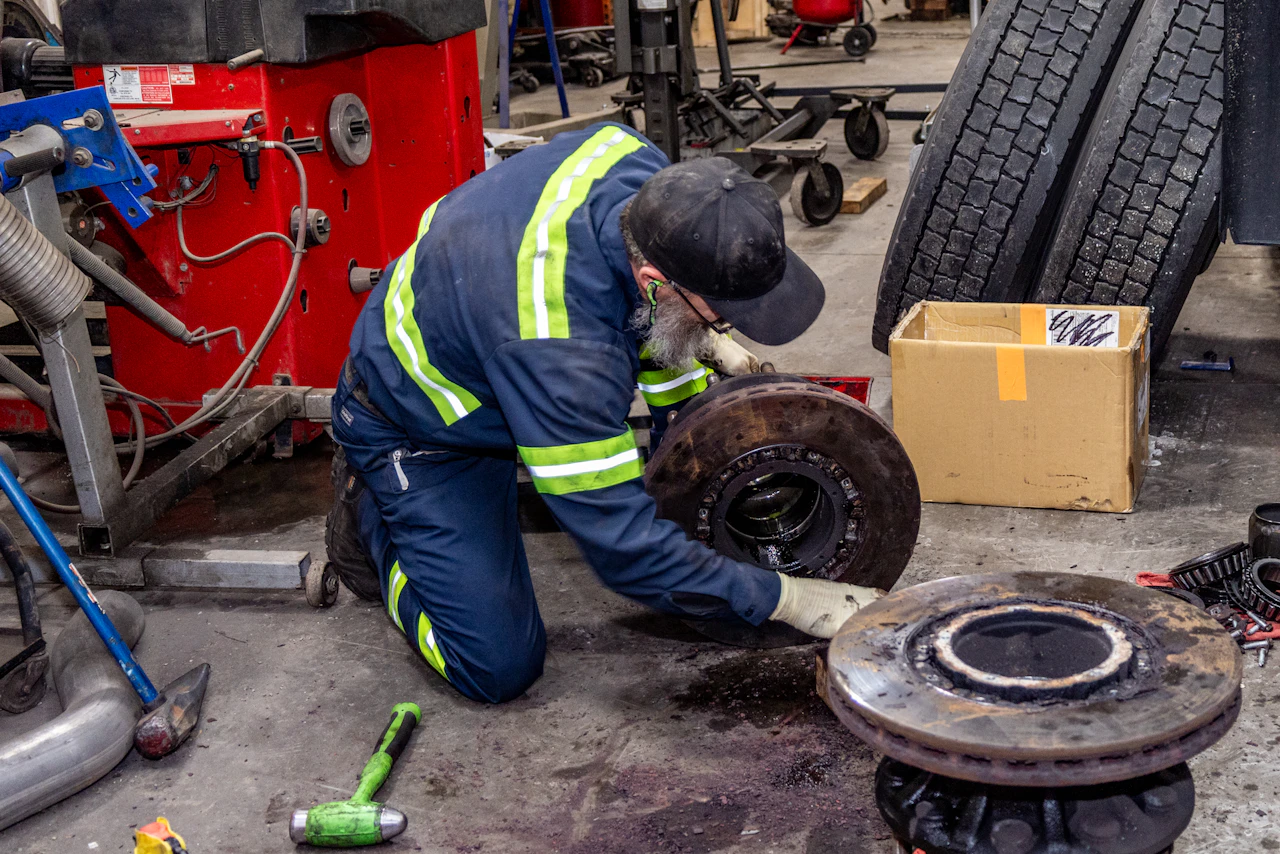The efficiency and longevity of heavy-duty vehicles are heavily reliant on the optimal functioning of their cooling systems. A well-maintained coolant system not only ensures operational efficiency but also prevents the engine from overheating, which could lead to significant cooling system repairs.
Understanding the causes, impacts, and resolutions of common cooling system issues is crucial to both fleet managers and owner-operators alike. This knowledge can prevent costly repairs and unscheduled downtime, helping both your overall operational efficiency and your budget.
Leakage in the Coolant System
Causes
Leaks in the coolant system can occur due to the deterioration of the hoses, the radiator, and the water pump seals. These components can weaken over time due to constant exposure to high temperatures and corrosive coolant chemicals.
Impact
A leak can lead to a drop in coolant levels, compromising the system's ability to regulate the engine's temperature. This might result in engine overheating, increased wear and tear, and potentially severe engine damage.
Resolution
Regular inspections can help identify early signs of wear and leaks. It's crucial to replace damaged parts with high-quality components promptly. Implementing a routine maintenance schedule can significantly reduce the likelihood of leaks and extend the coolant system's lifespan.
Clogged Cooling System
Causes
Clogging can be caused by sediment buildup, rust, and the use of incorrect coolant types. These blockages restrict the flow of coolant, weakening the system's cooling capabilities.
Impact
A clogged cooling system can lead to overheating, inefficient cabin heating, and can strain the engine, leading to increased fuel consumption and reduced performance.
Resolution
Performing a coolant system flush at manufacturer-recommended intervals is essential. This process removes debris and buildup, ensuring a clear path for coolant flow. Always use the correct type of coolant to prevent sediment accumulation and chemical reactions that can lead to clogging.
Faulty Thermostat
Causes
Thermostats can fail due to mechanical wear or the accumulation of debris, preventing them from opening or closing at the appropriate times.
Impact
A faulty thermostat can cause the engine to overheat by not allowing coolant to circulate correctly. This can also keep the engine running too cool, leading to inefficient fuel consumption and increased emissions.
Resolution
Regular checks can help detect a malfunctioning thermostat early. Replacing a faulty thermostat will often require professional coolant system mechanics. Once replaced, the engine will operate within the optimal temperature range, maintaining fuel efficiency and preventing overheating.
Damaged Water Pump
Causes
Like other components, the water pump can suffer from wear and tear over time, particularly its seals and bearings. Contaminated coolant can also accelerate the degradation of the pump's components.
Impact
A damaged water pump can lead to poor coolant circulation, causing the engine to overheat. It can also lead to coolant leaks, further reducing the system's efficiency.
Resolution
Water pump inspections should be part of your coolant system maintenance routine. When repairs are needed, high-quality replacements are crucial to ensure long-term durability and performance.
Internal Engine Problems
Causes
Internal engine issues, such as a blown head gasket, can introduce coolant into the combustion chamber or mix it with the oil, causing serious problems within the engine.
Impact
These issues can lead to overheating, loss of engine power, and white smoke from the exhaust. Left unaddressed, they can cause catastrophic engine failure.
Resolution
Early detection through regular engine diagnostics is vital. Professional cooling system repair services are often required to address these complex issues. Do not try to rectify this at home, or you could make the issues worse and endanger your safety.
Conclusion
Recognizing the common causes of cooling system repairs is essential for maintaining the operational efficiency and reliability of heavy-duty vehicles. By understanding what leads to these issues, their impact on the system, and the appropriate resolutions, fleet managers and truck owner-operators can take proactive steps to prevent costly repairs and downtime.
Regular maintenance and professional coolant system inspections are the foundation of a healthy cooling system, ensuring your operations stay efficient on the road, no matter what.

